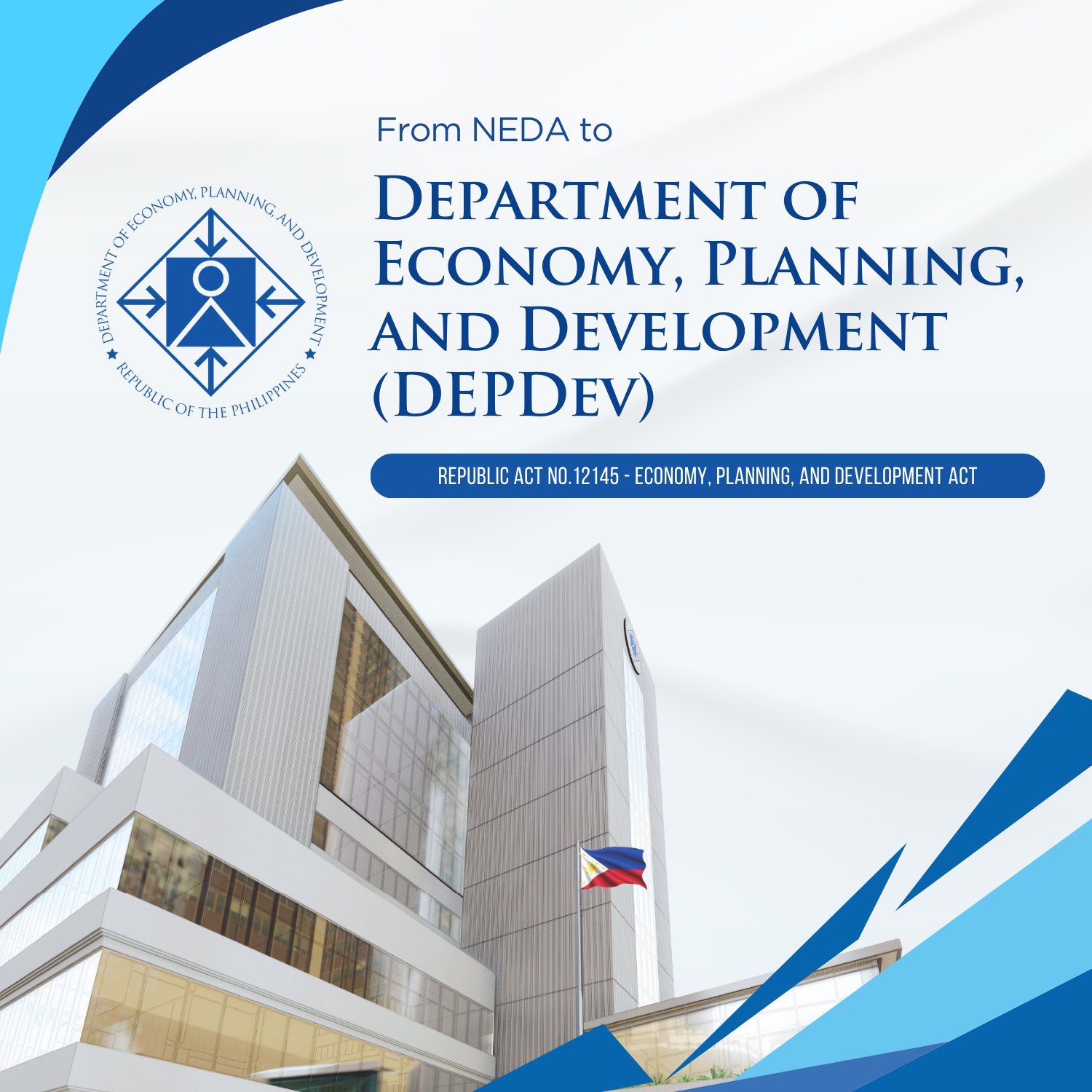
By Ruth Abbey Gita-Carlos | Philippine News Agency
President Ferdinand R. Marcos Jr. has signed into law a measure reorganizing the National Economic and Development Authority (NEDA) into the Department of Economy, Planning, and Development (DEPDev).
Under Republic Act (RA) No. 12145 inked by the President on April 10, the DEPDev will serve as the government’s primary economic and planning agency and the primary policy, planning, coordinating, and monitoring arm of the executive branch on the national economy.
“It shall formulate the country’s continuing, integrated, and coordinated policies, plans, and programs for national development for approval by the Economy and Development (ED) Council; ensure the vertical and horizontal alignment and coherence of national and subnational policies, plans, and programs towards optimal use of financial and economic resources; and oversee the country’s public investment program,” the law read.
“The DEPDev shall generate and provide impartial, objective, and evidence-based analyses and recommendations for the socio-economic betterment of the nation, particularly the Philippine government, and Filipinos in general,” it added.
The new department is directed to undertake consultations with appropriate government agencies, civil society organizations, non-government organizations, people’s organizations, the academe, private sector, and local government units (LGUs) to incorporate their priority needs in the formulation of policies, plans, programs, and projects.
Composition
The DEPDev will be composed of the Office of the Secretary, the Offices of the Undersecretaries and Assistant Secretaries, technical and sectoral staff, operations support staff, and Regional Offices.
“The DEPDev shall formulate a long-term vision, hereinafter referred to as the Vision, which embodies the long-term aspirations of all Filipinos. It shall be data-driven and evidence-based, encompassing all dimensions of economic, social, and environmental development,” according to RA 12145.
“The DEPDev shall formulate the country’s long-term development framework, hereinafter referred to as the Framework. The Framework is a high-level and broad strategy spanning 25 years that shall guide the country toward sustainable growth and development and the attainment of the Vision,” it added.
The DEPDev Secretary, as the country’s chief economist, is directed to advise the President and the Cabinet on matters of national and subnational economic and social development.
The Secretary is also mandated to provide regular reports on the state of the economy and future challenges; lead public discourse on the latest trends, strategic issues, future thinkings, and key developments; and provide executive direction and supervision over and establish policies and standards for the department’s efficient and effective operations.
The department head is also tasked to exercise disciplinary powers over officers and employees of the DEPDev and promulgate rules and regulations for the implementation of the DEPDev’s mandate, objectives, and policies.
Attached agencies
The agencies currently attached to the NEDA will be attached to the DEPDev and will continue to operate and function, in accordance with their respective charters, laws, rules, and regulations, or orders on their creation, except as otherwise provided in RA 12145, the Administrative Code of 1987, and subsequent laws.
The Philippine National Volunteer Service Coordinating Agency and the Tariff Commission will be attached to the DEPDev for purposes of administrative supervision.
The Philippine Institute for Development Studies, the Commission on Population and Development, the Development Academy of the Philippines, and the Public-Private Partnership Center of the Philippines will serve as attached agencies of the DEPDev for purposes of policy and program coordination.
The DEPDev will establish, operate, and maintain an office in each region of the country, except in Metro Manila and the Bangsamoro Autonomous Region in Muslim Mindanao.
“Each regional office shall be headed by a Regional Director, who shall be assisted by an Assistant Regional Director. The DEPDev Regional Offices shall discharge the functions of the DEPDev, as applicable, at the regional level,” according to the law.
Planning call
Another key reform under RA 12145 is the institutionalization of the Planning Call, which seeks to further strengthen the linkages between planning, budgeting, and monitoring and evaluation by establishing clear standards, guidelines, and accountability mechanisms.
The initiative streamlines the integration of development priorities into the budgeting process, reducing inefficiencies and delays, promoting transparency and accountability in government decision-making, and ensuring that public resources are channeled to programs and projects most responsive or proven impactful to the country’s development needs.
The Planning Call mandates all government agencies to prioritize and facilitate the submission of inputs and carry out actions pertinent to plan formulation, including the organization of the plan steering committee and other planning committees.
It also provides the standards, guidelines, and accountability mechanisms to ensure linkage of planning with budgeting, and the harmonization of national, subnational, sectoral, and spatial plans and programs.
NEDA Board reorganization
Based on RA 12145, the NEDA Board will also be reconstituted as the Economy and Development (ED) Council, which will be headed by the President of the Philippines.
The ED will serve as the executive collegial body responsible for directing and providing overall policy direction on economic matters to achieve inclusive and sustainable economic growth and development.
RA 12145 takes effect 15 days after its publication in the Official Gazette or a newspaper of general circulation.
